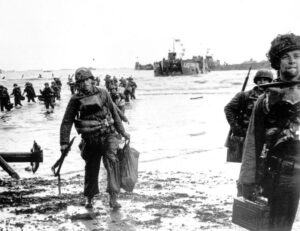
Saturday marked the 76th anniversary of the Allied invasion of Europe and the beginning of the end for Nazi Germany.
The assault was enormous and relied on mobilization of a far-flung naval armada to deliver the necessary men and machines to the beaches at the appointed time.
In order to escape detection, a large number of ships involved in the invasion had to arrive from western Scotland and Wales and so had to start their ferries three or four days before the invasion began.
Those circumstances required the production of long-range weather forecasts contributed by three main agencies — the British Meteorological Office, U.S. Army Air Forces, and an amalgamated group at the Supreme Headquarters of the Allied Expeditionary Force.
As early as mid-February 1944, trial five-day forecasts were being made by a consensus of the three groups. At the time, the science of meteorology, and especially of weather forecasting, had not matured to the point where such long-range forecasts were really any better than guesses.
As the forecast window shortened to one to two days, the assembled experts were substantially better and more confident.
Late April and most of May were characterized by spectacular weather and the Germans fully expected the invasion would come then. As May turned to June, the weather turned for the worse.
With the original date of June 5 postponed due to an intense cyclone in the English Channel (it would end up being the region’s most intense June cyclone of the 20th century), slight improvement was foreseen for Tuesday morning, June 6, and the rest is history.
While riding to the Capitol on his inauguration day in 1961, President John F. Kennedy asked President Dwight D. Eisenhower why the Normandy invasion had been so successful.
Eisenhower answered, “Because we had better meteorologists than the Germans.”

